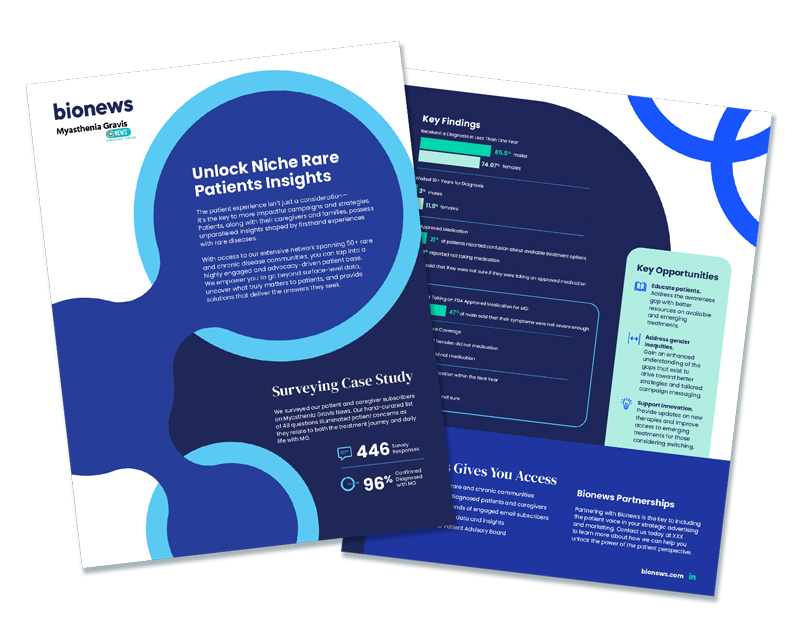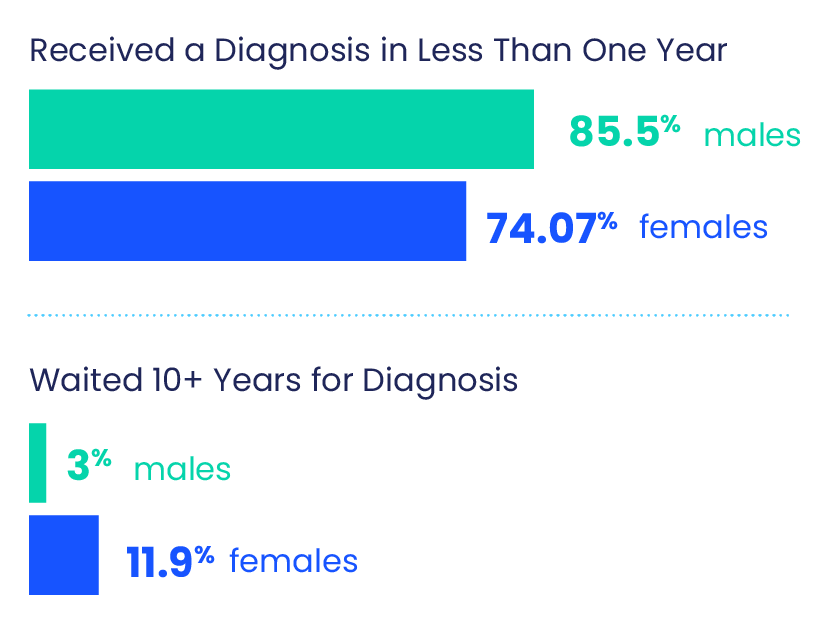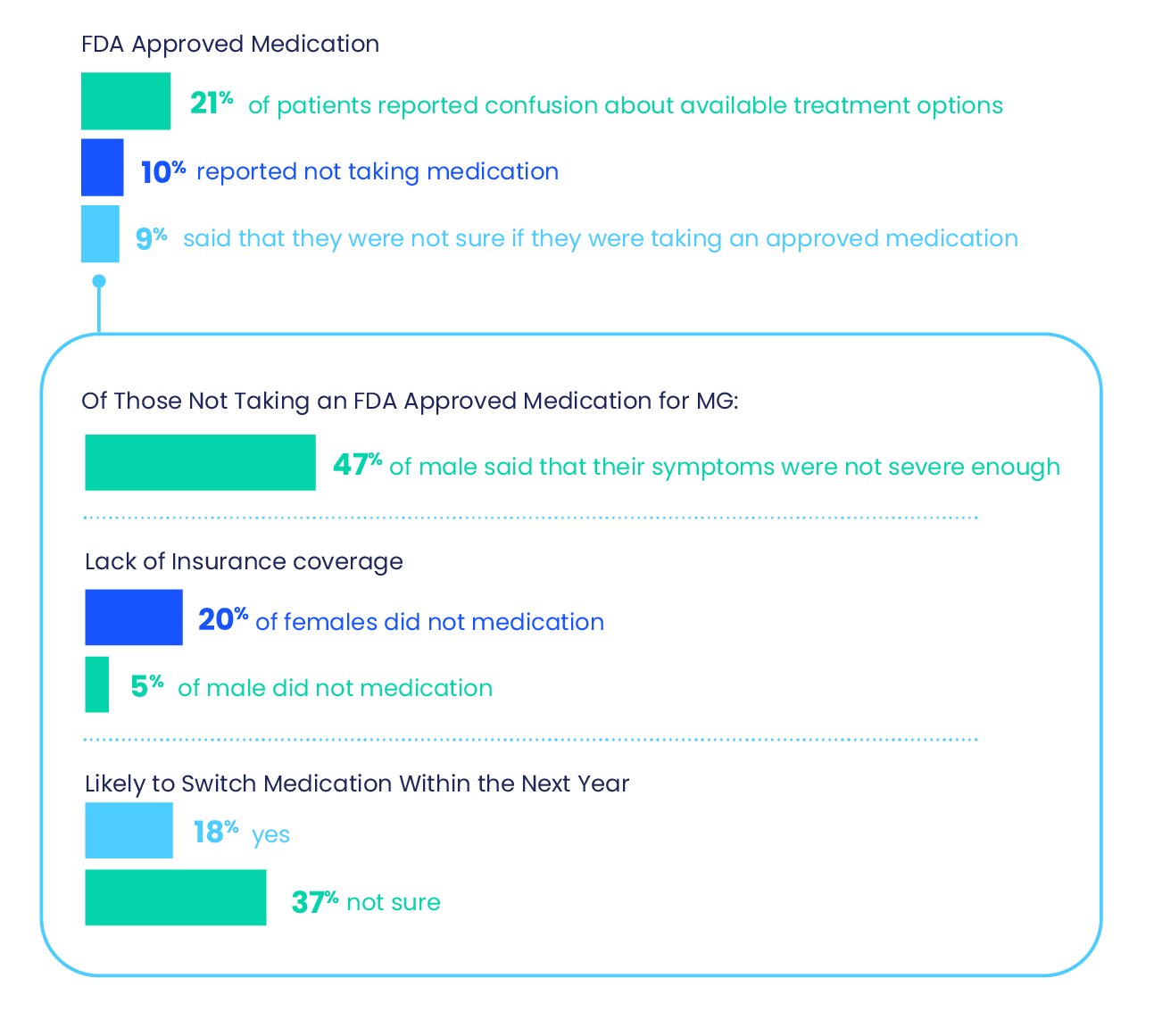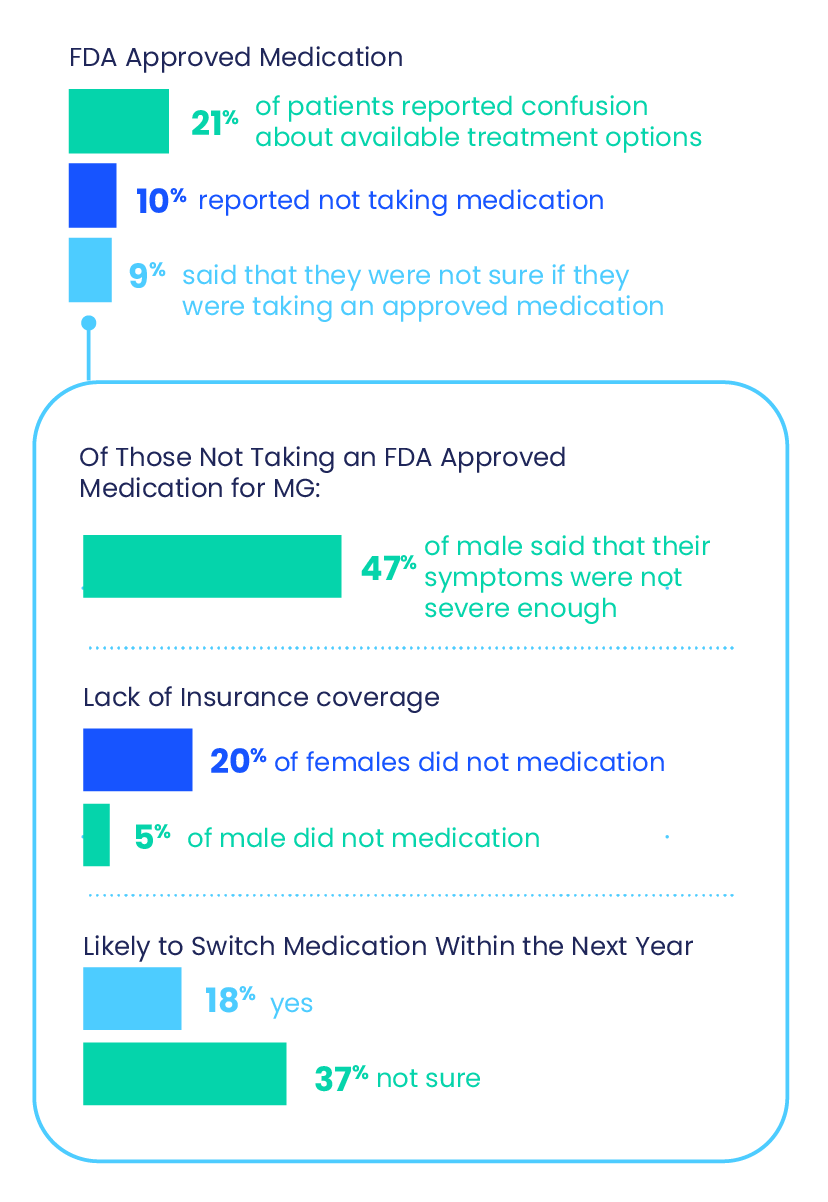Bionews Insights:
The Treatment Journey & Daily Living with Myasthenia Gravis: Amplifying the Patient Voice to Drive Improvements
Marcella Debidda, PhD, President of Bionews Clinical and Insights | March 12, 2025

The management of Myasthenia Gravis (MG), presents several unmet needs despite advancements in treatment options. These needs encompass challenges in diagnosis, treatment efficacy, quality of life, and the overall healthcare landscape for patients.
At Bionews, we deeply believe that the patient perspective plays a critical role in unearthing treatment pitfalls. Patients, along with their caregivers and families, possess unparalleled insights shaped by firsthand experiences with rare diseases like Myasthenia Gravis. As one of our 50+ rare and chronic disease communities, Myasthenia Gravis News provides us with access to a highly engaged audience of patients and caregivers. This access affords us the opportunity for dynamic surveying capabilities with patients who are motivated and eager to be advocates to perpetuate the advancement of diagnosis, treatment, and ongoing care of MG while also deepening our understanding of every aspect of living with a rare condition.
In 2024, Bionews sent a 48-question survey to our dedicated list of email subscribers on Myasthenia Gravis News. This survey garnered responses from 446 MG patients. The questions in the survey were hand-curated to specifically surface patient concerns and needs as they pertain to both the treatment journey and daily living with MG.
The results of the survey uncovered several areas of concern ranging from delays in diagnosis and gender imbalances to gaps in awareness about treatment options. In this article, we will share a selection of our key findings and how Bionews’ personal approach to rare disease content continues to play a role in rare disease care.
Diagnosis: Observed Gender Differences
An increased awareness on gender biases has been a contentious topic permeating the medical community, however little data is available to surface evidence. The results from our survey suggest that male and female MG patients experience their MG journey differently Below are a couple of key takeaways from their responses.


Male MG patients are more likely to receive an expedited diagnosis.
Of the patients surveyed, 85.5% of males received a diagnosis in less than one (1) year. This was contrasted with only 74.07% of females receiving a confirmed diagnosis in the same amount of time.
Female MG patients are more likely to experience extended diagnostic timelines.
Of the patients surveyed, 11.9% of females reported waiting 10+ years to receive a confirmed diagnosis. Inversely, only 3% of male patients report waiting the same amount of time for a diagnosis.
Treatment: A Potential Lack of Awareness
Pharmaceutical intervention and treatment of MG is key to managing symptoms and improving the quality of life for patients. The feedback we received from our survey suggests that, of the patients surveyed, there are glaring inconsistencies regarding awareness and treatment options. The following takeaways were observed.


Treatment options and awareness is an issue.
Of the patients who took the survey:
-
- 10% reported not taking FDA approved medication for MG.
- 21% reported confusion about available FDA approved treatment options and 9% stated that they were unsure if they were taking an FDA approved medication for MG
Behavior insights
Of those not taking an FDA approved medication for MG:
-
- 47% of male said that their symptoms were not severe enough.
- 20% of females vs 5% of male did not take MG medication due to lack of insurance coverage.
- 18% of respondents said they were likely to switch medication within the next year, 37% of respondents said they were not sure.
Insurance coverage remains an obstacle.
Lack of insurance coverage for FDA approved MG medications led 20% of females and 5% of males surveyed to not pursue pharmaceutical treatment.
Female MG patients are taking more medications.
From our survey group, 55% of females reported taking 6-10+ medication to manage their disease. This is contrasted by only 34.5% of males taking the same amount.
Enhancing Communication and Understanding in Myasthenia Gravis Care
Some Myasthenia Gravis patients have shared that they sometimes feel their symptoms are not fully acknowledged by healthcare providers, leading to frustration and a feeling of not being fully heard. These experiences can lead to seeking additional opinions, which may delay diagnosis and treatment while increasing costs. Our survey highlights the importance of improved dialogue and mutual understanding between patients and providers. Read more about these patient perspectives.
“My family doctor at the time told me it was all psychological, and nothing was wrong with me physically. I had to search through doctors to find one who believed my symptoms were related to Myasthenia Gravis.”
“Too many physicians are unwilling to believe me when I list my symptoms, blaming age or dismissing them as unimportant. Medical bias is very frustrating.”
Key Opportunities & Action Items
Educate patients.
Address the awareness gap with better resources on available and emerging treatments.
Address gender inequities.
Reduce the high medication burden and access issues faced by women.
Support innovation.
Provide updates on new therapies and improve access to emerging treatments for those considering switching.
Final Thoughts
By partnering with patients to understand their needs and gaps and by prioritizing innovation in both treatment development and delivery, pharmaceutical companies can build stronger relationships with the MG community, address key unmet needs, and establish themselves as leaders in the field. Ultimately, these efforts will not only drive better outcomes for patients but also create more sustainable, patient-centric treatment solutions for the future.
Partner With Bionews For Patient Insights
Pharmaceutical companies and marketers need access to patient data to make more informed decisions to increase the effectiveness of campaigns and reach niche, rare patients where they are and amplify their voices. Partnering with Bionews gives you direct access to over 50 rare and chronic disease communities made up of patients, caregivers, and family members when they are in a clinical mindset. Whether you are interested in our surveying expertise or high-performing advertising opportunities, we want to hear from you. Contact us today to learn more about how we are championing the patient voice to create better outcomes.
About Bionews
BioNews is a health media company focused on rare diseases and rare patient experiences. BioNews provides an insider’s view into disease and treatment news, condition management information, and community across more than 60+ chronic and rare diseases. A fierce champion of the rare voice, BioNews content is designed to reach, engage, and elevate even the smallest patient populations.